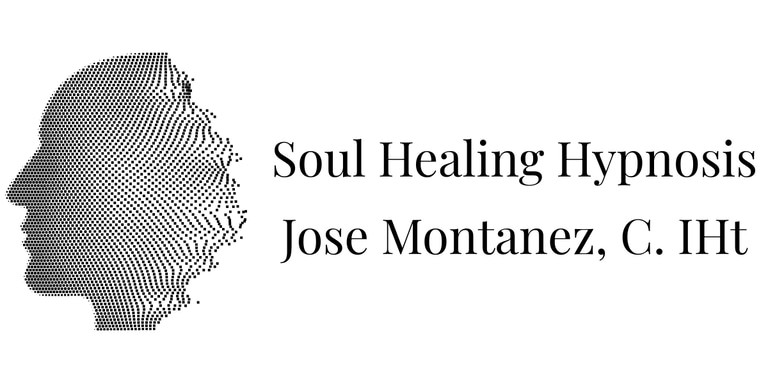Hypnosis Misconceptions
Debunking Common Myths
Jose Montanez
4 min leer


Hypnosis has long been shrouded in mystery, often misunderstood and misrepresented in popular culture. From Hollywood thrillers to stage performances, the portrayal of hypnosis has created myths that can make people hesitant to explore its benefits. As a hypnotist, I want to offer a fresh perspective and clear up these misconceptions so you can better understand what hypnosis truly is—and how it can positively transform your life.
Let’s dive into some of the most common myths about hypnosis and uncover the truth behind them.
Misconception 1: Hypnosis Is Like Falling Asleep
The Truth: Hypnosis is not sleep—it’s heightened awareness.
While hypnosis may look like sleep from the outside, it’s far from it. When you’re hypnotized, your mind becomes highly focused, allowing you to tune out distractions and engage deeply with your thoughts. You’re fully aware of what’s happening and can respond to suggestions consciously.
Misconception 2: Hypnosis Strips Away Your Free Will
The Truth: Hypnosis enhances your control, not diminishes it.
One of the biggest fears people have is losing control during hypnosis. The reality? Hypnosis empowers you to take charge of your thoughts and behaviors. You cannot be forced to do or say anything against your will—your moral compass stays intact.
Misconception 3: Hypnosis Is Mystical or Magical
The Truth: Hypnosis is rooted in science, not mysticism.
Forget the idea of hypnotists wielding magical powers. Hypnosis is a natural mental state that we all experience daily—like when you’re engrossed in a book or daydreaming. Hypnotists simply guide you into this state intentionally to help you access your subconscious mind and make meaningful changes.
Misconception 4: You Might Get “Stuck” in Hypnosis
The Truth: Hypnosis is temporary and completely safe.
It’s impossible to get stuck in hypnosis. Even if the hypnotist stops speaking, you’ll naturally return to your normal state of awareness or drift into regular sleep. Hypnosis is a process your mind can exit at any moment—it’s as simple as opening your eyes.
Misconception 5: Hypnosis Can Trigger Hidden Mental Instabilities
The Truth: Hypnosis is therapeutic and does not harm mental health.
Hypnosis is widely used as a tool for healing and emotional well-being. Far from causing instability, it’s often employed to address anxiety, phobias, and trauma. Professional hypnotists are trained to ensure the process is safe and tailored to your needs.
Misconception 6: Only Certain People Can Be Hypnotized
The Truth: Hypnosis is accessible to everyone.
Some believe that only “weak-minded” individuals can be hypnotized, but this couldn’t be further from the truth. Hypnosis works best for those with strong focus and imagination, but with the right guidance, anyone can experience its benefits.
Misconception 7: Hypnosis Is Sinister or Evil
The Truth: Hypnosis is a recognized therapeutic practice.
Thanks to sensationalized media, hypnosis has been wrongly associated with mind control or dark forces. In reality, hypnosis is endorsed by medical organizations as a legitimate tool for treatment and self-improvement.
Misconception 8: Hypnosis Can Make You Spill Secrets
The Truth: Hypnosis cannot override your boundaries.
This myth is a favorite of spy movies, but it’s pure fiction. Hypnosis doesn’t compel you to reveal private information or secrets. You remain in control of what you share and what you keep to yourself.
Misconception 9: Hypnosis Will Make You Act Foolishly
The Truth: Clinical hypnosis is respectful and professional.
Stage hypnosis has led to the belief that hypnotized people can be made to cluck like chickens or behave embarrassingly. Therapeutic hypnosis is entirely different—it’s a dignified and supportive process designed to help you heal and grow.
Misconception 10: You’ll Forget Everything After Hypnosis
The Truth: You’ll remember as much as you choose.
While some people experience partial memory gaps after a session, others recall everything clearly. Regardless, the subconscious mind absorbs suggestions effectively, ensuring the work done in hypnosis has lasting impact.
A Closer Look at Hypnosis
Hypnosis is a state of heightened focus and relaxation that allows you to connect deeply with your subconscious mind. It’s not about losing control—it’s about gaining clarity and unlocking new possibilities.
What Hypnosis Feels Like:
Imagine being so absorbed in a movie or book that the outside world fades away. That’s similar to the hypnotic state—your conscious mind quiets down, and your subconscious becomes more accessible.
How Hypnosis Works
Entering the State: Through relaxation techniques, you’re guided into a focused, calm state.
Deepening the Trance: The hypnotist helps you move into a deeper level of relaxation.
Positive Suggestions: You receive affirmations and interventions tailored to your goals.
Returning to Awareness: You’re gently brought back to full consciousness, feeling refreshed.
Applications of Hypnosis
Hypnosis can be used for a variety of purposes, including:
Therapeutic Healing: Managing anxiety, overcoming fears, and releasing trauma.
Behavioral Changes: Breaking habits, such as smoking, or fostering new ones like healthy eating.
Enhancing Performance: Improving focus, confidence, and creativity.
Exploration: Accessing past memories or exploring deeper aspects of yourself.
Final Thoughts
Hypnosis is not the mysterious, mind-controlling force it’s often made out to be. It’s a safe, natural, and empowering tool that helps you tap into your inner strength and make lasting changes.
If you’ve ever been intrigued by hypnosis but held back due to misconceptions, I hope this post has given you a fresh perspective. Hypnosis is about helping you become the best version of yourself—with your full consent and cooperation.
Jose montanez - Soul Healing Hypnosis
info@josemontanez.com
(678) 829-2202
© 2025. Jose Montanez - Soul Healing Hypnosis
